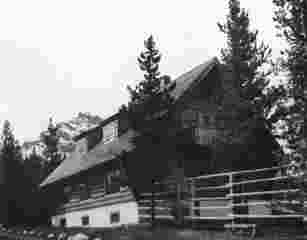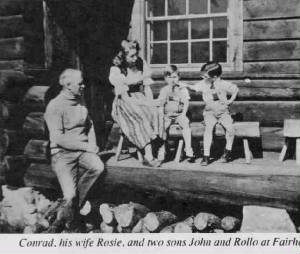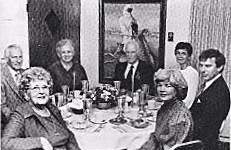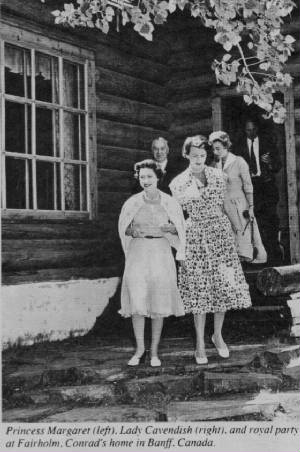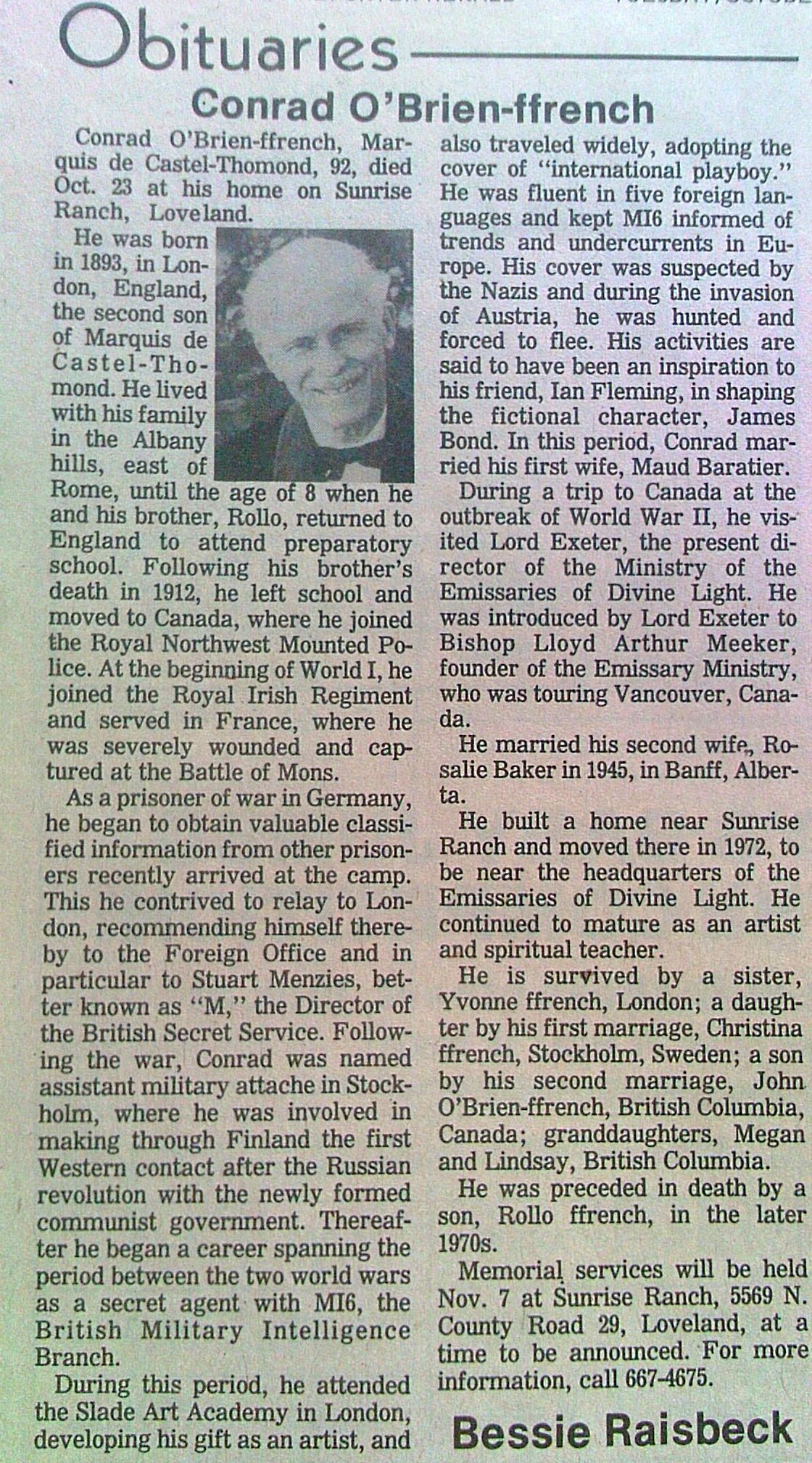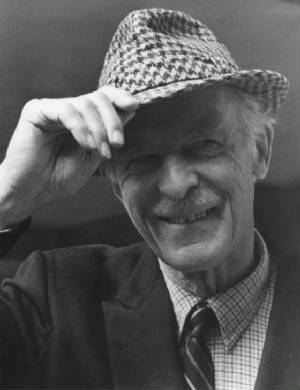
| Home | Lineage and Birth | The early years. | Conrad the Mountee. | 23rd of August 1914 | Captivity Espionage and Escapes | Augustabad | Barry Bingham VC | Conrad meets M | Conrad Assistant Military Atache. | The ffrench Connection | The Last Tigerhunt. | The Archaeology of the Reich | From Intrigue and artifice to Art. | The names Ffrench, Conrad Ffrench. | Ian Fleming | The Black Ore of Death | An Evil Medium | Off the Chessboard. | Arbutus Point. | Conrad retires to the field | The Art of Conrad O'Brien-ffrench | The Quotient of Conjecture. | News and Gossip | Bookshop & Bibliography | Mailbag | Related Links | Contact Me | |||||||||||||||||||||||||||
|
Conrad Fulke O'Brien-ffrench. Artist and Spy. |
|||||||||||||||||||||||||||
|
Conrad retires to the field
|
|||||||||||||||||||||||||||
|
|
|||||||||||||||||||||||||||
On his
return to Conrad had
fallen in love at first sight and, for her part, Rosalie reciprocated his
feelings. They began meeting regularly in They
stayed until 8 May – VE day –
and saw Winston Churchill driving slowly down
Piccadilly with his V sign and cigar, followed by cars full of returned POW’s
amid tumultuous celebration by the crowds that lined the way. A few days later,
the newlywed Mr and Mrs ffrench sailed for
Conrad
lasted four years at Fairholme, but in the end accepted he must sell as his funds were dwindling. Then, on "was living like an Oriental prince. He had given most of
his money to Ontlology in return for living quarters in a splendid cabin on a mountaintop, where five - no kidding -
young women took turns in making sure he was well fed and cared for." (p. 246). Life begins at 90 By Conrad O’Brien-ffrench. written to celebrate his 90th birthday. We are here
to celebrate my growing out of my 80’s. We are here
to celebrate my growing out of my 80's. I thus start
my second series of eighties. I hope
there will be more as I grow up. During my
first 80 years everybody wanted to carry my luggage or help me up the steps. If I forgot
my name, or someone else's, people said.
"Oh well. He's 80, you know
," if I put
things away and forgot where I put them, or while shopping left my shopping list
at home. It was okay because I was 80. If I acted
silly, put shaving cream on my toothbrush tried starting my car with my house
key. It was understandable - he's 80 At 60 or 70
some expected me to retire to my little house on the hill, or to But if you
survive until 80 everybody surprised that you can walk , let alone uphill, or
can drive a car, or that you have
occasional lucid moments. At 70 I was
clumsy and made mistakes which maddened everyone. But at 80 they forgive you
everything and think it is rather funny. If you
ask me life begins at 90.
|
|||||||||||||||||||||||||||
|
|
|||||||||||||||||||||||||||
|
.
|
|||||||||||||||||||||||||||
